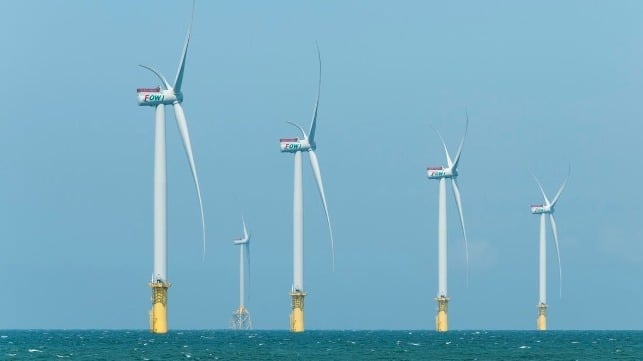Taiwan Drops Local-Content Rules, Smoothing the Path for Offshore Wind

Taiwan has agreed to scrap its local content requirements in its recent offshore wind auction, marking the end of a trade dispute with the EU. Taiwan is now committed to introduce flexibility in its offshore wind tenders, starting with auction round 3.2 completed in August. This added flexibility will address supply chain difficulties faced by offshore wind developers, including those from Europe.
Taiwan introduced a localization policy in 2021, aiming to spur development of the domestic offshore wind supply chain. Per the local content rules, at least 60 percent of parts used in offshore wind farm development must be sourced locally, except for products and services that the Taiwanese supply chain cannot readily provide.
In July, the EU filed a formal challenge at the World Trade Organization (WTO) contesting Taiwan’s localization policy. The EU argued that by Taiwan implementing stringent local content rules, it discriminated against imported goods and services, which is inconsistent with WTO regulations.
Last week, the European Commission revealed that its director-general for trade Sabine Weyand and Taiwan’s Minister of Economic Affairs Jyh-Huei Kuo exchanged letters, setting out new terms that saw the local content rules removed. This means that Taiwan can no longer include localization requirements in future allocation rounds, either as eligibility conditions or as award criteria.
“Provided that Taiwan follows through with the outlined commitments, the EU does not intend to pursue this matter further within the WTO. Addressing barriers in Taiwan’s offshore wind market is crucial for a sector of strategic importance to the EU,” said the European Commission.
In the recent 3.2 offshore wind auction round, Taiwan awarded 2.7 GW of capacity across five projects. During this round, local developers such as Synera and Shinfox appeared to have a head start, possibly due to local content compliance. A big surprise was the Danish energy multinational Orsted missing out on its 570 MW Greater Changhua 3 project. Analysts speculated that Orsted was likely edged out in the bid due to low local content compared to competitors.
